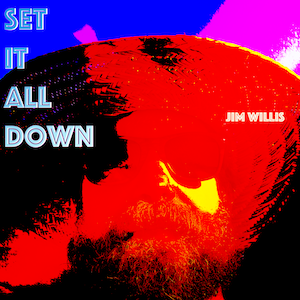This weekend’s Sunday New York Times magazine featured an article about buying your way into a “cleaner” Internet experience by Kevin Roose. The article’s message that the internet is just furthering the divide between the haves and have-nots is untrue and based entirely on Roose’s limited view of the Internet that completely ignores what is perhaps the most useful piece of the internet: the personal website.
Roose writes as if the personal website—which arguably is the wellspring of the Internet’s promise of informational equality—either never existed or no longer exists.
For those too young to remember, in the very early days of the web it felt like HTML was this easy-to-use tool that allowed a whole bunch of people to share their knowledge with the world. Personal websites could be goldmines of really arcane knowledge that, fueled by HTML and web hosting allowed people to make websites and share their knowledge.

If you wanted to know how to fix a guitar effects pedal, there was probably a guy who was writing up some HTML with instructions on how he fixed his own pedal complete with lousy digital photos from his cell phone. But that free sharing of knowledge was what filled me with such hope about the internet.
Roose refers to . . . the ad-based model that powers the free internet . . .
I think we need some kind of distinction here between the Free Internet and the internet of free stuff. The former is that virtual space where there is a balance of making and taking and it is populated by internet citizens who care deeply about maintaining the personal and individual side of the web.
The internet of free stuff is what happened when tools like Napster were unleashed on the world. When Roose writes about the Free Internet he’s really talking about the internet of free stuff. They’re two very different things.
We moved from the Free Internet to the internet of free stuff when sharing by makers got sort of twisted and distorted and the circumference of the circle around what was given away for free kept getting wider and wider.
Soon it wasn’t just instructions on how to fix guitar effects pedals or replace the speedo in your Volkswagen but it was albums and tv shows and movies.
And that’s when things got weird.
Today’s internet is full of premium subscriptions, walled gardens and virtual V.I.P. rooms, all of which promise a cleaner, more pleasant experience than their free counterparts. The pay walls have been rebuilt, and the artists no longer work for tips. Hundreds of millions of people shell out for Netflix accounts, Patreon podcasts, Twitch streams, Spotify and news subscriptions. The average American spent more than $1,300 on digital media last year.
But like a superhighway that gets built up through an old neighborhood, these two internets live side by side now. These subscription services are not going away, but it doesn’t mean that the old neighborhood of personal webpages is going to go away anytime soon. And just because Roose doesn’t see them from his vantage point along the superhighway doesn’t mean there isn’t real value in them.
Roose is correct when he writes:
Billions of people still use the free internet every day, of course. But it feels increasingly like wading into a sludge pit of algorithmically promoted misinformation, privacy-invading apps and subpar user experiences.
The article’s primary point is that if you want to escape the sludge pit, you need to buy your way out of it. His view from the commercial web’s superhighway is such that buying your way out of the sludge pit is the only solution he can imagine.
But there’s an alternative. Instead of buying your way out of the sludge you can learn how to build a bridge over it or go around it.
I and many others have learned how to use the Free Internet every day while minimizing our exposure to “algorithmically promoted misinformation, privacy-invading apps and subpar user experiences.” My primary tool for this, of course, is an RSS reader but that’s not the only way.
My point is that there still exists a Free Internet that is a wealth of knowledge and community and you don’t need to buy your way —in fact you can not buy your way—into it. It requires mining for personal homepages that exist outside of the algorithms. Wandering through the old neighborhoods of the Internet and learning the locals’ language.
Shawn Blanc shows that he knows those neighborhoods and speaks the locals’ language when he writes about searching the web for information about cameras:
You see, I wanted to get some real life, normal-person, story-based reviews of the camera — as opposed to the sterile, press-release regurgitation articles that are on so many of the high-ranking websites that appear on page 1 of Google results.
And so, in order to get to the good stuff — the articles that were written by normal folks with normal blogs who had been using the camera for a while before they wrote their review — I had to skip past the first page.
It seems to me that what the web needs now more than ever to guarantee the equal access to information is a search engine for personal websites. A magic tool that somehow ignores all corporate/big-tech content and drills down directly to those sites written mostly for free by people who love a subject so much that they are happy just to write about it in the hopes of helping and connecting with other people who share their interests.

